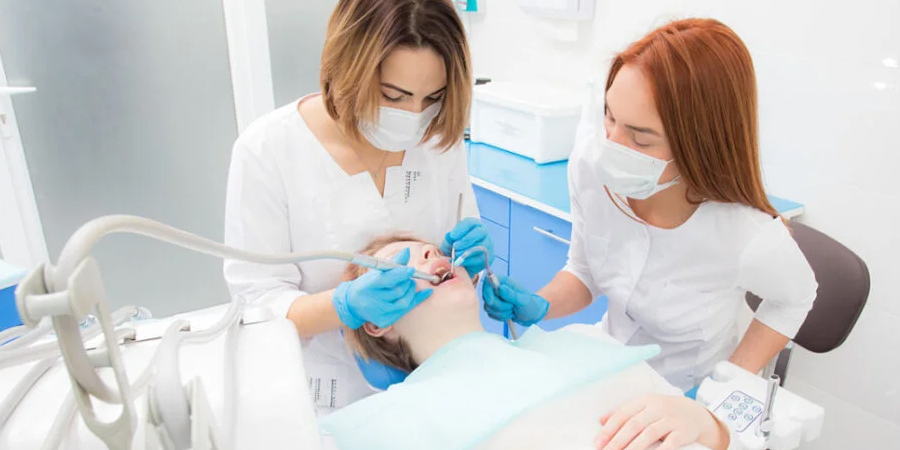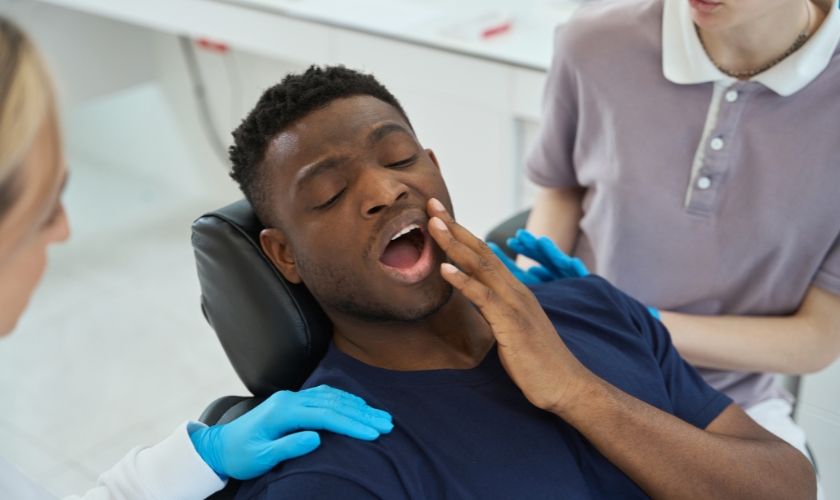
Pregnancy is an exciting journey, but it comes with its share of challenges—especially when it comes to oral health.
Have you noticed changes in your gums or teeth recently?
You’re not alone.
Hormonal shifts during pregnancy can leave your mouth more vulnerable to infections, gum disease, and even tooth decay. And when a dental emergency strikes, it’s natural to feel concerned about finding safe and effective solutions for you and your baby.
But here’s the good news: you can handle dental emergencies with confidence when armed with the right knowledge. From toothaches to swollen gums, knowing what steps to take and which treatments are safe can make all the difference.
This blog dives into everything you need to know about managing dental emergencies during pregnancy—without compromising your health or your baby’s safety. Whether you’re dealing with discomfort now or preparing for the unexpected, you’re in the right place to learn how to protect your smile and your growing little one.
How Pregnancy Affects Oral Health?
Pregnancy introduces hormonal changes that impact nearly every part of the body, including oral health. Increased levels of estrogen and progesterone can make gums more sensitive and prone to inflammation, a condition known as pregnancy gingivitis. These changes can cause tenderness, swelling, and even bleeding gums. Addressing these symptoms early prevents them from escalating into more serious issues.
Here’s how pregnancy affects oral health:
- Hormonal shifts lead to gum sensitivity: Pregnancy gingivitis is common, especially in the second trimester. Regular brushing and flossing can help reduce inflammation.
- Increased vulnerability to oral infections: Weakened immune responses make it easier for infections to take hold, potentially affecting overall health.
- Morning sickness impacts teeth: Stomach acid from frequent vomiting can erode enamel. Rinse your mouth with water or a fluoride solution after episodes.
- Cravings and dietary changes: Sugary snacks and unusual food combinations can increase the risk of cavities. Choose tooth-friendly alternatives when possible.
Common Dental Emergencies During Pregnancy
Pregnancy doesn’t make you immune to dental emergencies. In fact, hormonal changes and increased blood flow can sometimes amplify issues like toothaches or gum infections. Addressing these problems promptly protects both you and your baby’s health.
Here are some common emergencies and how to manage them:
- Toothaches from decay or infection: Sudden pain may signal cavities or deeper issues. Avoid hot or cold foods and rinse with warm salt water until you see a dentist.
- Gum infections and bleeding: Inflamed or bleeding gums can indicate periodontal disease, which, if untreated, may impact pregnancy outcomes.
- Dental injuries: Falls or accidents might chip or knock out teeth. Preserve any tooth fragments and consult an expert like an emergency dentist in Hesston for prompt care.
Is Dental Treatment Safe During Pregnancy?
Many pregnant women wonder whether dental treatments are safe. The answer largely depends on the trimester and the type of procedure needed. Delaying treatment can sometimes pose greater risks than the procedures themselves.
Here’s what you need to know:
- Safest trimesters for dental care: The second trimester is ideal for non-urgent treatments. During this time, nausea often subsides, and the baby’s major organs are fully developed.
- Safe procedures: Cleanings, fillings, and X-rays (with protective shielding) are generally safe. Always inform your dentist about your pregnancy.
- Risks of ignoring emergencies: Untreated dental infections can spread, potentially leading to preterm labor or other complications. Don’t delay professional care when needed.
First Aid for Dental Emergencies: A Guide for Pregnant Women
Dental emergencies can feel overwhelming during pregnancy, but having a clear action plan can ease stress and discomfort. Acting quickly minimizes risks and ensures you get the right care.
Follow these first-aid tips:
- Manage pain with safe remedies: Use acetaminophen (Tylenol) instead of ibuprofen. Apply cold compresses to reduce swelling.
- Rinse wisely: For infections or gum injuries, rinse with warm salt water to soothe irritation and keep bacteria at bay.
- Seek professional help when needed: For severe pain or injuries, consult a dentist immediately. Don’t ignore symptoms, as they could escalate.
By staying informed and prepared, you’ll feel more confident handling unexpected dental issues. Effective emergency dental care for pregnant women prioritizes safety while providing relief.
Preventive Measures to Avoid Dental Emergencies
Taking preventive steps during pregnancy can significantly reduce the chances of a dental emergency. A proactive approach ensures better oral health for you and your baby.
Here’s how to stay ahead:
- Practice excellent oral hygiene: Brush twice daily with fluoride toothpaste and floss regularly. This helps combat plaque and reduce gum inflammation.
- Schedule regular checkups: Visit your dentist for professional cleanings and early detection of potential issues.
- Focus on nutrition: Include calcium-rich foods like yogurt and leafy greens. Avoid excessive sugary snacks, which increase cavity risk.
- Stay hydrated: Water not only helps with dry mouth but also washes away food particles and bacteria.
What to Expect at the Dentist: Adjusted Care for Pregnant Women
Visiting the dentist during pregnancy involves tailored care to meet your unique needs. Dental teams prioritize your safety and comfort while addressing oral health concerns.
Here’s what to expect:
- Pregnancy-specific accommodations: Reclined chairs, shorter appointments, and extra support make visits more comfortable.
- Tailored medication and anesthesia: Dentists use pregnancy-safe options to ensure minimal risk. Discuss any concerns with your dentist beforehand.
- Coordination with your OB-GYN: Collaboration ensures that any medications or treatments align with your overall prenatal care.
Open communication with your dentist helps you feel confident in the care you receive. Professional emergency dental care for pregnant women ensures your oral health stays on track, even during emergencies.
Pregnancy is a transformative journey, but unexpected dental emergencies can add stress. With the right knowledge and timely care, you can protect your oral health while keeping your baby safe. Always consult professionals who understand the unique needs of pregnant women. Whether it’s managing a toothache or preventing emergencies, proactive steps make a difference. Trust your instincts and seek help when needed—your smile and overall well-being deserve the best care during this special time.



